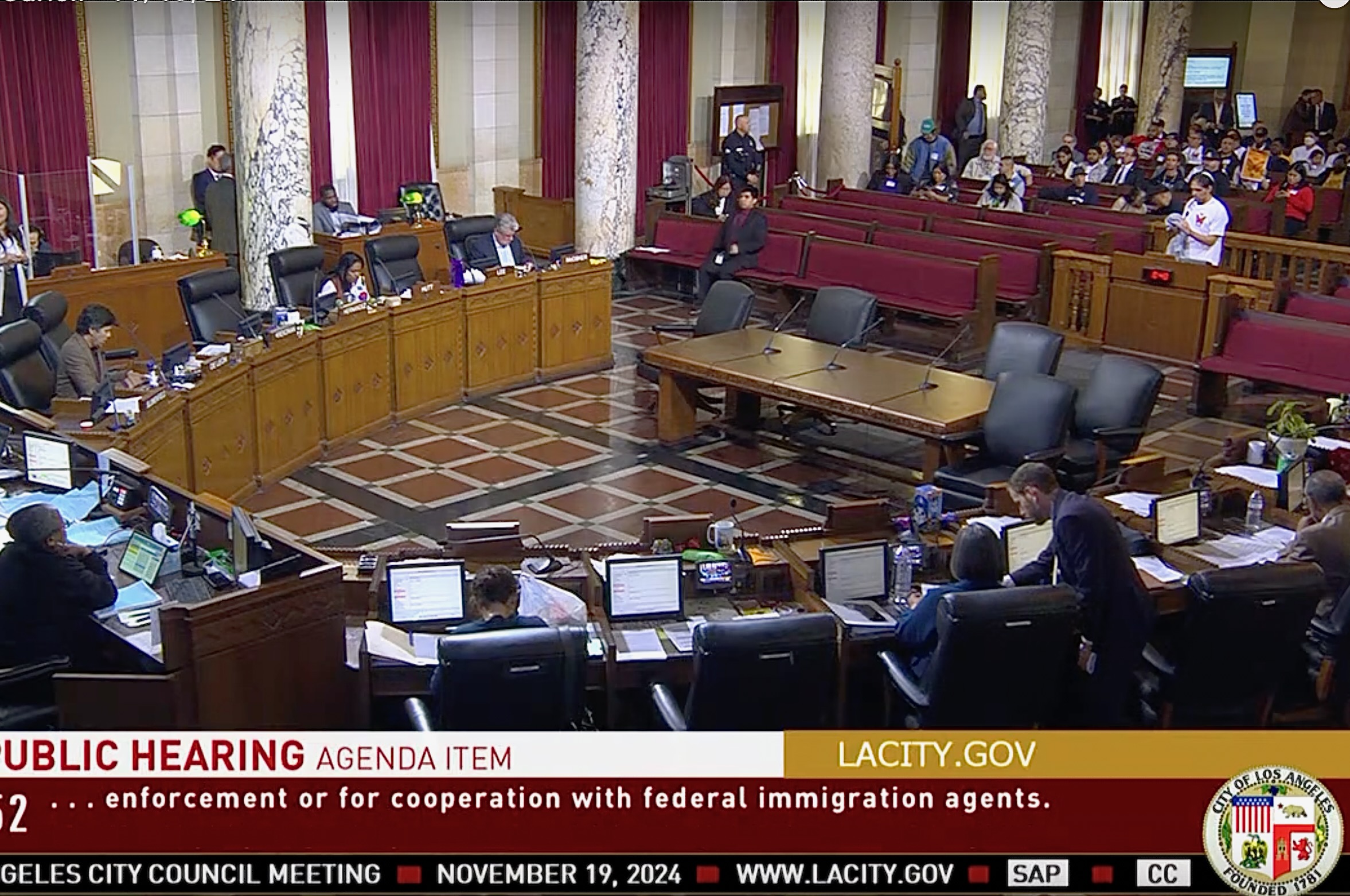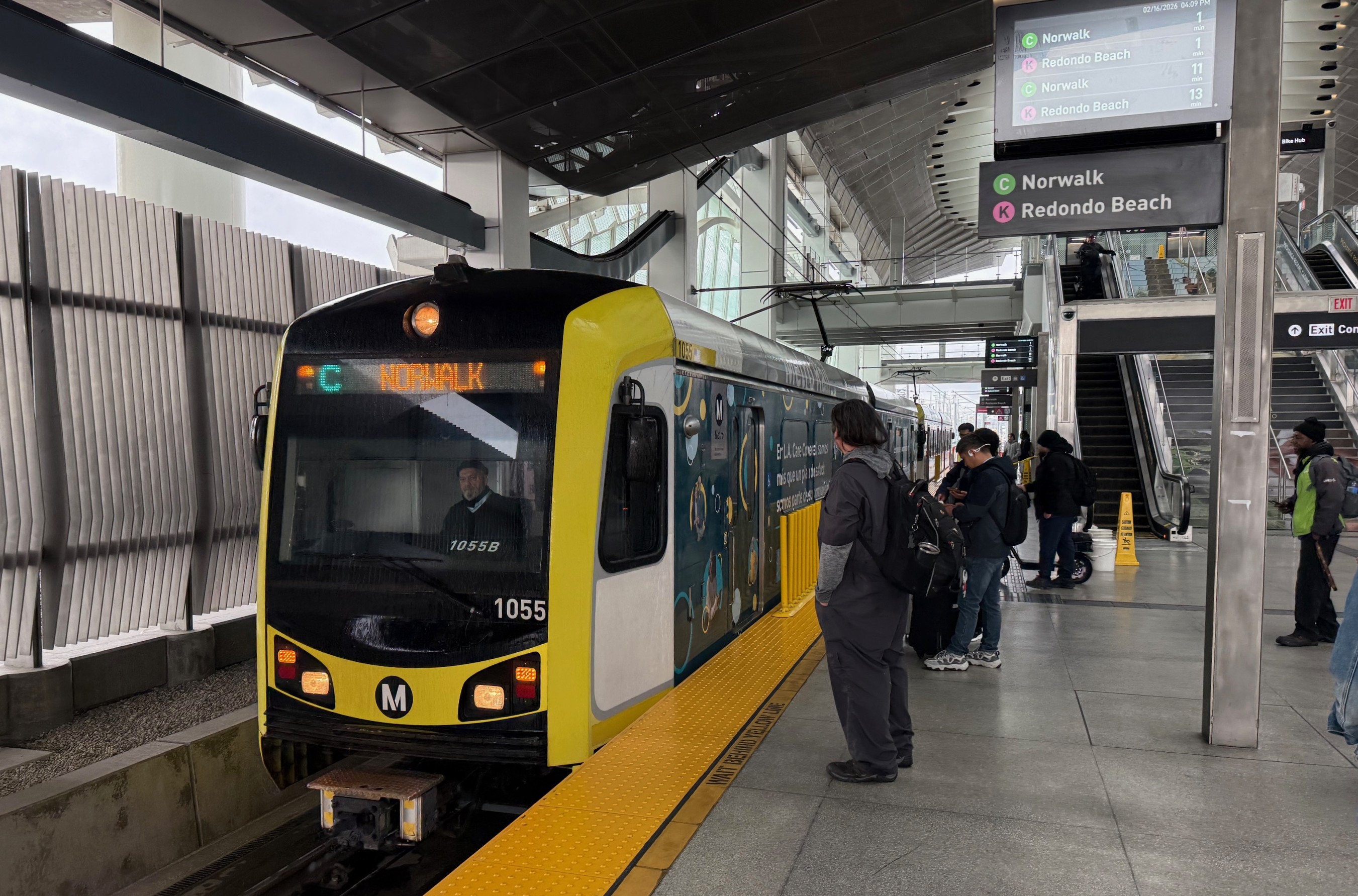Against a national backdrop of hateful and xenophobic rhetoric, relentless fear-mongering around "migrant crime," reprehensible people on social media declaring they hope Latinos who voted for president-elect Donald Trump learn their lesson when he breaks up their families, and reaffirmed threats of mass deportation by the newly elected president, Los Angeles City Council finally codified a sanctuary city ordinance in 13-0 vote last Tuesday.
The new ordinance – first proposed in 2023 – reaffirms the city’s prohibition on the use of city resources, including property or personnel, for immigration enforcement or to cooperate with federal immigration agents engaged in immigration enforcement. It also prohibits the direct or indirect sharing of data with federal immigration authorities.
That it took a year and a half to be finalized speaks to the city’s long-running struggle to maintain momentum when it comes to protecting the most vulnerable Angelenos.
During the first Trump administration, pledges to resist quickly faltered as officials wrestled with balancing other interests.
A $10 million justice fund proposed to assist immigrants with legal fees in December of 2016 initially stalled as then-mayor Eric Garcetti and others attempted to limit who could access the funds. In early 2017, sounding concerned about Trump withholding federal funding or tanking Los Angeles’ Olympic bid, Garcetti also publicly tap-danced away from suggestions L.A. was a “sanctuary” city, telling NPR’s David Greene he preferred to think of it as a “welcoming” city instead. And a few months later, when Garcetti signed an executive directive that reaffirmed the city’s policy of not cooperating with federal immigration enforcement and expanded Special Order 40 - the LAPD policy prohibiting officers from initiating an investigation to determine someone's immigration status - to cover fire fighters and police at the Port and LAX, he carefully avoided “sanctuary” language.
City Council also struggled to meet the moment. Advocates had renewed calls for Council to decriminalize street vending and establish a vending ordinance at the end of 2016, fearing Trump would deport immigrants for minor infractions. But Council delayed formal decriminalization until February of 2017. And when the promised ordinance finally surfaced over a year later in 2018, it had been sharply tailored to please wealthier communities and business districts looking to keep vendors out of their neighborhoods. Those exclusionary restrictions – which ultimately served to further impoverish vendors, encourage hostile treatment from law enforcement, and validate anti-vendor and xenophobic sentiments within the public – were only rescinded this past summer, after vendors forced the city’s hand via a lawsuit.
Similarly, a “city of sanctuary” resolution proposed in 2017, after Trump took aim at DACA (the Deferred Action for Childhood Arrivals program), languished for two years before being approved in 2019. The formal ordinance never made it out of committee.
This time around, with the 2028 Olympics looming on the horizon, Mayor Karen Bass selected Jim McDonnell as her choice for LAPD’s next Chief of Police.
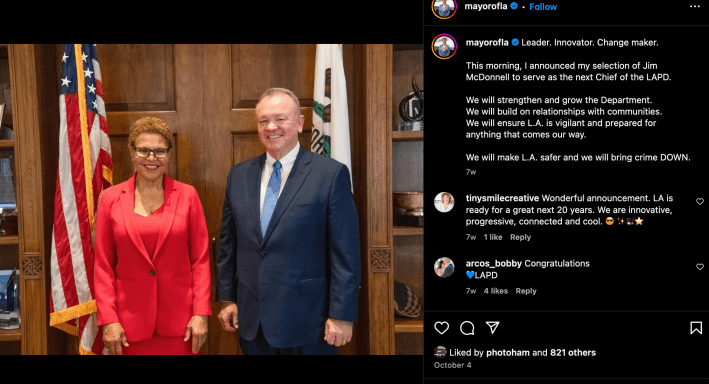
The October 4 announcement - which came as Trump bounced from swing state to swing state, promising to deport millions of legal and unauthorized immigrants on day one of his new term - caused an uproar among immigrants and immigrant advocates. During his brief tenure as L.A. County Sheriff, McDonnell had authorized the U.S. Immigration and Customs Enforcement Agency (ICE) to operate in the jails and been vocal in his opposition to California's sanctuary state legislation.
During a sustained grilling about his views on sanctuary policies at the October 29 Public Safety Committee meeting, McDonnell twisted himself into pretzel after pretzel, affirming his intention to follow standing LAPD policy while keeping his personal views close to his chest. Even when asked directly by Councilmember Hugo Soto-Martinez whether he would commit to adhering to a sanctuary ordinance, McDonnell rambled at length about how he understood his role as Chief of Police before finally agreeing that he would “work with whatever the policy of the city is.”
McDonnell was slightly more responsive to those concerns during his approval hearing before the full Council last Tuesday. He praised the role of immigrant communities in L.A. while reiterating that LAPD would not arrest people for their status and would not assist with mass deportations.
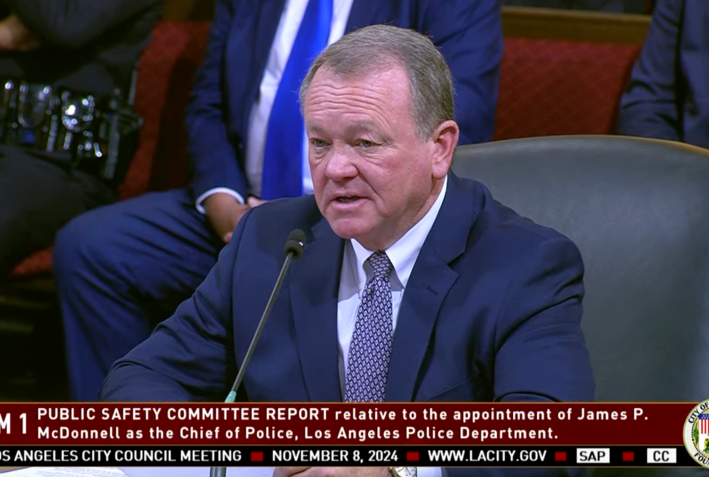
When asked about how his views had evolved on sanctuary laws or working with ICE, however, his answer suggested they hadn't actually shifted all that much.
He still looked at things through a public safety lens, he said, but his mandate had changed. Instead of having jurisdiction over the jails, he would now be responsible for fostering safer communities.
Building trust, especially with immigrant communities, was an essential part of that work, he acknowledged.
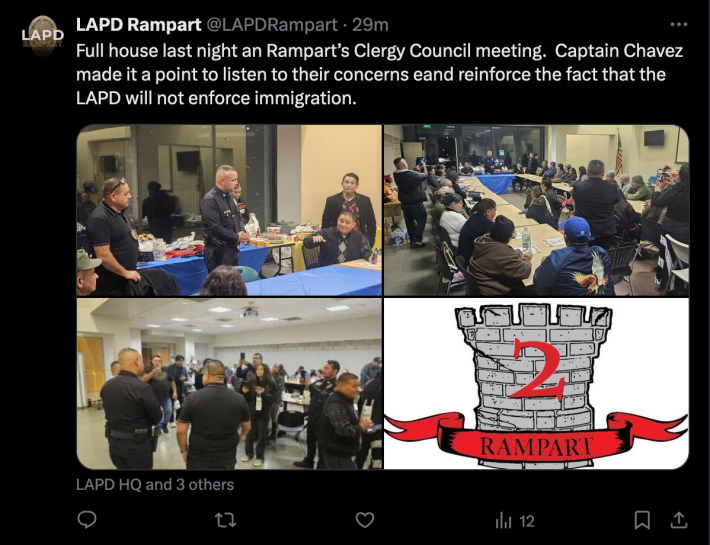
The extensive questioning of McDonnell was not just a formality. LAPD’s reluctance to allow the city to set policy for it likely played a role in the ordinance being held up for the last year.
Special Order 40 is also not a fail-proof firewall.
First proposed by then-Chief Daryl Gates in 1979, it was intended to encourage undocumented immigrants to report crime without fear of deportation. But, as advocates documented at the time, training and enforcement around the policy had been lax and uneven. Then, when the Border Patrol was invited to assist LAPD with keeping the peace during the 1992 uprising, both agencies seized the opportunity to round up around a thousand so-called “riot aliens,” regardless of whether they were engaged in criminal activity.
The New York Times called it “one of the biggest detentions of illegal aliens in the city’s history.” Once in jail, the detainees were pressured into signing voluntary deportation forms and held in deplorable conditions for weeks. Hundreds were eventually deported.
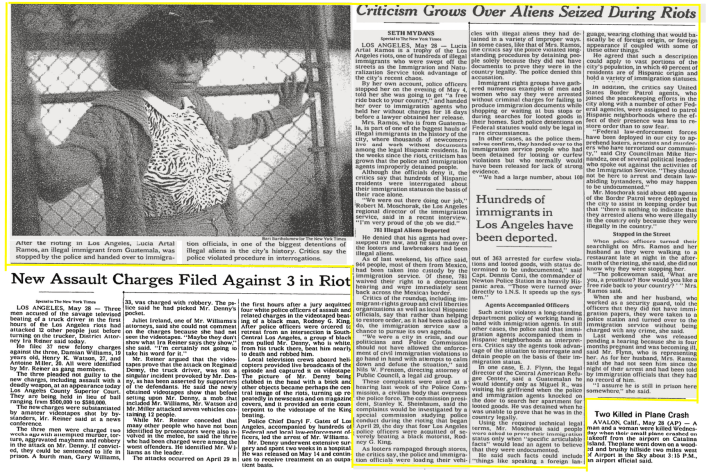
An amendment proposed by Councilmember Eunisses Hernandez seems aimed at ensuring history does not repeat itself. It asked for a report back within 60 days on whether and how the city can compel the LAPD and proprietary city departments (those governed by a board of commissioners) to adopt a similar ordinance, train staff of those departments accordingly, and ensure that staff found to be in violation are held accountable. [That amendment, along with two others, will be incorporated into the final draft of the ordinance and should be voted on in December. See the full Council file here.]
As expected, Trump’s base did not take the vote well.
Fox News kicked things off by suggesting the vote had been more contentious than it was, implying those raising concerns “about the depletion of resources given to help illegal immigrants” opposed the ordinance. This was not true. Several members of the Women’s Leadership Project had indeed asked that Council not forget Black women and girls as they worked to protect immigrants. But, unlike the Fox segment, which depicted immigrants as dangerous, most speakers did not take a position on the ordinance, underscored their shared needs and vulnerabilities, and/or joined others in encouraging resources to be invested in much-needed services rather than deportation.
The comment section on Breitbart’s brief summary of the vote quickly exploded with nearly a thousand readers demanding that federal funds be cut off to L.A. and that city officials be thrown in jail or meet even more violent ends.
In between posting AI-generated memes of himself cosplaying a superhero, Mar-a-Lago's newest houseguest, Elon Musk, boosted more Great Replacement conspiracy claims about immigrants, asylum seekers, and sanctuary cities while exhorting his followers to recall politicians in sanctuary cities for “protecting” child rapists.
And in an increasingly less surprising move, the billionaire owner of the L.A. Times, Dr. Pat Soon-Shiong, reposted a clip of conservative CNN pundit Scott Jennings in which he downplays the negative impacts of mass deportation.
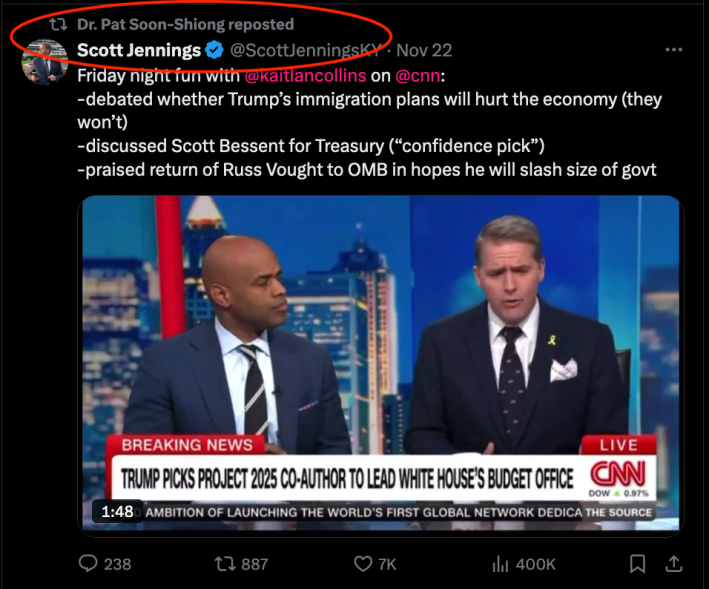
Whether Trump will actually be able to follow through on mass deportations is an open question.
Conservative estimates suggest it would be prohibitively expensive - costing several hundred billion dollars – and that the federal government lacks both the manpower and the necessary infrastructure to make it happen.
That hasn't stopped Tom Homan, Trump’s “border czar” pick, from saber-rattling on right-leaning media.
Taking a break from appearing on extremist podcasts, he has spent the last week hopping from Fox to Newsmax and back to Fox, telling mayors and governors resisting deportation to "get the hell out of the way" or face the potential consequences, including being jailed.
Although he has said multiple times that he is focused on removing violent criminals first, he has also claimed cities' refusals to work with him will effectively force him to flood communities with agents, ensuring others will also be swept up in the net. It is a prospect which, per his suggestion to 60 Minutes that "families can be deported together," does not seem to bother him in the least.
In some of his more rhetorically aggressive appearances, he has declared he would not be "bullied" into not doing his job by images of crying children or people wary of seeing the military deployed on American streets. And when asked specifically about L.A. during a Newsmax segment (below), he bluntly proclaimed, "If I gotta send twice as many officers to L.A. because we're not getting any assistance, then that's what we're going to do. We got a mandate. President Trump is serious about this. I'm serious about this. This is going to happen with or without you."
Imperfect as the sanctuary protections are, the federal government is also - at least, for now - somewhat limited in its ability to back up some of these more egregious threats.
A new CBS poll indicates the American public is largely against the deployment of the military for deportation. And Trump's efforts to defund sanctuary cities were met with only limited success the first time around.
But so much of the noise around migrants, the border, and immigration policy is also about scapegoating and sowing fear to create space for the president-elect to behave as he and his extreme team see fit.
That fear was palpable in Council last Tuesday. And it was personal. Those who were not immigrants themselves introduced themselves as the sons, daughters, friends, partners, close relatives, colleagues, teachers, therapists, faith community members, or neighbors of immigrants while asking for the right for all of them to live and work together in peace and safety.
"Please..." Rabbi Lisa Edwards with Clergy and Laity United for Economic Justice implored city leaders and anyone who had tuned in for the key vote, "Can we 'lock arms,' as Mayor Bass likes to say, and protect our precious residents, one and all?"
